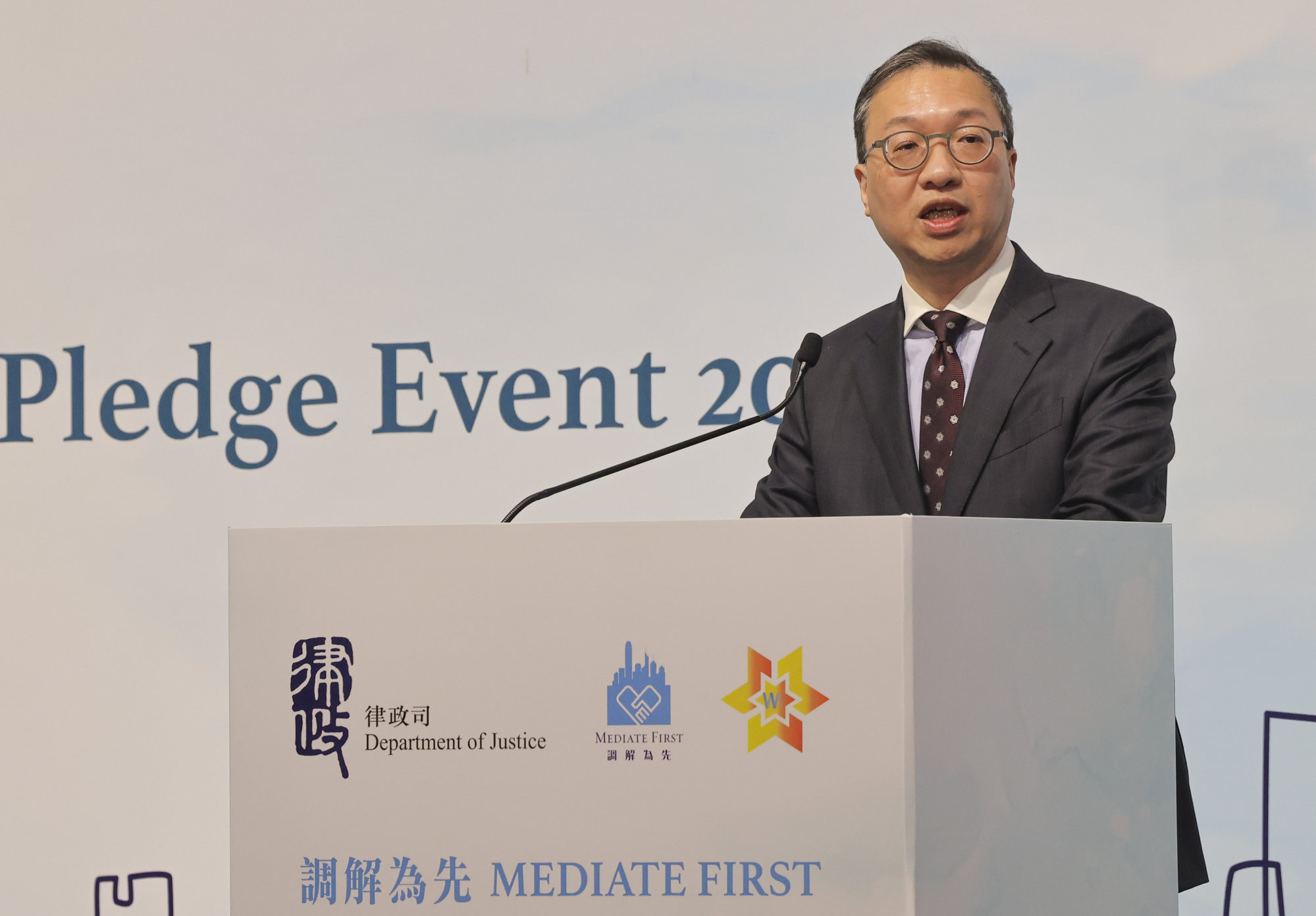
Hong Kong not legally required to set up district councils, justice minister says
- Secretary for Justice Paul Lam says recently announced reform aimed at ensuring district councils ‘fully and accurately implement’ intent of Basic Law
- Lam points to Article 97, which states municipal-level bodies that are not organs of political power ‘may be established’ in city
Secretary for Justice Paul Lam Ting-kwok told reporters on Friday the overhaul, unveiled earlier this week, was needed to ensure future district councils “fully and accurately implement” the intent of the Basic Law, the city’s mini-constitution, and “play their relevant roles as prescribed”.

Lam highlighted Articles 97 and 98, the only sections in the Basic Law that related to the establishment of district organisations.
“We must bear in mind several things when looking at Article 97. First, the government may set up district organisations. But the establishment is not a must. Secondly, which is more important, district organisations are not organs with political power,” Lam said.
“In other words, district organisations cannot exercise any political power. They are totally different from the Legislative Council, which enjoys political powers that include enacting laws and monitoring the performance of the government.”
Hong Kong voters ‘not being punished’ by district council revamp
Lam added that, according to Article 97, municipal-level bodies have two major roles to play: to be consulted by the city government on district affairs and to provide services such as holding events involving culture, recreation and environmental protection.
The minister also pointed to Article 98, which stipulates that the powers and functions of district organisations and the method for their formation shall be prescribed by law.
“The Basic Law has not outlined any specific requirement for the district organisations’ formation,” he said. “That means the local government could proceed with methods it sees appropriate according to the law.”
But Senior Counsel Ronny Tong Ka-wah said even though district councils were not a legal requirement, they should carry on as they helped ensure better delivery of public services at local levels.
“I don’t think setting up district councils is unnecessary,” Tong said.
He added that municipal bodies could also monitor the government’s performance, although not with as much power as the Legislative Council.
“For general monitoring, district councils could definitely do so by providing consultations to the government,” Tong said.
“Like the media, they also shoulder the job of monitoring the government. But their impact might not be as powerful as the Legislative Council’s as it has the right to repeal laws and approve budgets.”
How will Hong Kong’s district council overhaul change neighbourhood political life?
The government announced on Tuesday that only 88 out of 470 district council seats would be chosen by the city’s 4.41 million registered voters. The bulk of the members will be appointed by the chief executive or chosen by three government-appointed committees.
A monitoring system will also be introduced to ensure district councillors fulfilled their duties.
When asked whether councillors who opposed government policies would be found in violation of their duties, Lam said all voices were welcomed but the government expected constructive suggestions from the bodies.

Chief Secretary Eric Chan Kwok-ki earlier told the Post that only residents willing to put in the time and commitment should accept an appointment to a district council.
Various administration figures, including Chief Executive John Lee Ka-chiu and Secretary for Security Chris Tang Ping-keung, on Friday paid visits to street booths set up by political organisations to promote the district council changes.
Lee wrote on Facebook that he was glad to see “the plan has received extensive support from all sectors of society, and that everyone has united with the government to actively promote the plan.”

